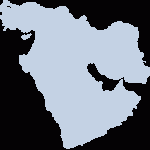Tuesday
Aug172010
US-Israel-Palestine Analysis: Arabs Talk Nuclear-Free Region, but Israel Returns US "Quartet Card"
 Tuesday, August 17, 2010 at 7:54
Tuesday, August 17, 2010 at 7:54  Arabs' 'Nuclear-Free Region' Insistence: Only three months ago, a nuclear-free Middle East was a stated aim of the United Nations Nuclear Non-Proliferation Treaty (NPT) conference. It was backed by the US Government. Then President Obama made it clear that his Administration would not question Israel's nuclear programme when Prime Minister Benjamin Netanyahu was hosted in the White House.
Arabs' 'Nuclear-Free Region' Insistence: Only three months ago, a nuclear-free Middle East was a stated aim of the United Nations Nuclear Non-Proliferation Treaty (NPT) conference. It was backed by the US Government. Then President Obama made it clear that his Administration would not question Israel's nuclear programme when Prime Minister Benjamin Netanyahu was hosted in the White House.However, it seems that the Arab nations have not given up chasing Israel's nuclear arsenal. A letter of 8 August, signed by Arab League chief Amr Moussa, asks for support of a resolution that Arab nations will submit to the September assembly of the International Atomic Energy Agency:
Singling out a state assumes that there are a number of states in the same position and only one state was singled out. The fact is that all the states in the region have acceded to the NPT except Israel.
Given the Arab League's "yellow light" for direct talks between Palestinians and Israelis, one wonders if some Arab nations are trying to boost credibility in the region with a sign of pressure on the US and Europe.
Meanwhile, Washington has little interests in talking nukes in West Jerusalem. Having failed to mediate direct talks, let alone a resolution, of the Israeli-Palestinian conflict, it now appears --- with the political pressure of November's mid-term elections already being felt --- that it may put the Quartet (United States, Russia, European Union, and United Nations) up front until the end of the year.
State Department spokesman Philip J. Crowley said last Wednesday that the Quartet was likely to issue a statement of support for the talks in the coming day. Then the Quartet was expected to make an announcement regarding the resumption of direct talks on Monday, with US sources saying that the Quartet would call for the establishment of a Palestinian state based on the pre-1967 borders.
This may be a different version of the March statement of the Quartet, in which it was asserted that talks should lead to a settlement, negotiated between the parties within 24 months, ending the occupation that began in 1967 and resulting in an independent, democratic and viable Palestinian state living side-by-side in peace and security with Israel and its other neighbours. The Quartet urged Israel to freeze all settlement activity, including natural growth, and to dismantle West Bank outposts erected since March 2001, and it underlined that the international community does not recognize Israel’s annexation of East Jerusalem.
A senior American official put on some pressure over the weekend by stating that the Palestinian Authority leader Mahmoud Abbas will announce the start of direct peace negotiations with Israel in only "a matter of days".
However, the dilemma remains that calls for a future Palestinian state based on pre-1967 War do not necessarily touch Israel's expansion of settlements both in the West Bank and East Jerusalem. And West Jerusalem is not blind to the disticntion: in the latest Cabinet meeting, all ministers except Defense Minister Ehud Barak and Deputy Prime Minister Dan Meridor rejected continuing the freeze in the West Bank. It was reported on Sunday that Netanyahu approved construction of 23 new classrooms in various West Bank settlements.
So another US card --- look to the Quartet, at least until mid-November --- played, another card apparently set aside, if not trumped, by Israel.
tagged  Arab League,
Arab League,  Benjamin Netanyahu,
Benjamin Netanyahu,  Dan Meridor,
Dan Meridor,  East Jerusalem,
East Jerusalem,  Ehud Barak,
Ehud Barak,  European Union,
European Union,  International Atomic Energy Agency,
International Atomic Energy Agency,  Israel,
Israel,  Mahmoud Abbas,
Mahmoud Abbas,  Nuclear Non-Proliferation Treaty,
Nuclear Non-Proliferation Treaty,  Nuclear Nonproliferation Treaty,
Nuclear Nonproliferation Treaty,  Obama Administration,
Obama Administration,  Palestine,
Palestine,  Palestinian Authority,
Palestinian Authority,  Philip J. Crowley,
Philip J. Crowley,  Quartet,
Quartet,  Russia,
Russia,  United Nations,
United Nations,  West Bank in
West Bank in  Middle East & Iran,
Middle East & Iran,  US Foreign Policy,
US Foreign Policy,  Uncategorized
Uncategorized
 Arab League,
Arab League,  Benjamin Netanyahu,
Benjamin Netanyahu,  Dan Meridor,
Dan Meridor,  East Jerusalem,
East Jerusalem,  Ehud Barak,
Ehud Barak,  European Union,
European Union,  International Atomic Energy Agency,
International Atomic Energy Agency,  Israel,
Israel,  Mahmoud Abbas,
Mahmoud Abbas,  Nuclear Non-Proliferation Treaty,
Nuclear Non-Proliferation Treaty,  Nuclear Nonproliferation Treaty,
Nuclear Nonproliferation Treaty,  Obama Administration,
Obama Administration,  Palestine,
Palestine,  Palestinian Authority,
Palestinian Authority,  Philip J. Crowley,
Philip J. Crowley,  Quartet,
Quartet,  Russia,
Russia,  United Nations,
United Nations,  West Bank in
West Bank in  Middle East & Iran,
Middle East & Iran,  US Foreign Policy,
US Foreign Policy,  Uncategorized
Uncategorized 
